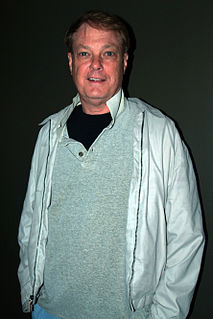A Quote by Max von Sydow
If people ask me, 'For you, what is your most important film?' I have a feeling that they all sort of want me to answer with one of the Bergman films. But I cannot choose.
Related Quotes
I don't ask my students to have studied film or any education in general. What I ask them is to come and sit and tell me a story, and the way they choose it and tell it, for me, the best criteria for whether they are right for making films. There's nothing more important than being able to tell your story orally.
For me, you go to university to meet lots of different people from different backgrounds. I think that's one of the most important things you get there. And you also get some sense of direction regarding what you want to do when you leave. I sort of know what I want to do in my life - I want to act and ultimately I'd like to write. And in terms of meeting people from different backgrounds, that's what you get on a film set. So the two most valuable things that university would have given me I've sort of achieved by being on a film set.
What I want to do is make films that astonish people, that astound people, and I hope you want to do that too. It's easy to make money. It's easy to make films like everybody else. But to make films that explode like grenades in people's heads and leave shrapnel for the rest of their lives is a very important thing. That's what the great filmmakers did for me. I've got images from Fellini, from Bergman, from Kurowsawa, from Bunuel, all stuck in my brain.
Someone once asked me what I regarded as the three most important requirements for happiness. My answer was: A feeling that you have been honest with yourself and those around you; a feeling that you have done the best you could both in your personal life and in your work; and the ability to love others.
Sometimes the best set experiences make for the worst films. So, you don't want it to be too good an experience! But the bulk of your life is working with people and collaborating so you don't want anyone to be miserable on your film either. You want it to be something that people walk away from saying that it was a good experience for them and hopefully a good film. As a director, you are sort of leader of that troupe for that period of time, so you're aware of morale and your effect - how you are as a person and how that sort of trickles down to everyone else.
I enjoy the making of the film and it's something for me to do. If nobody ever comes to my films, if people don't want to give me money to make films, that will stop me. But as long as people come all over the world and I have an audience and I have ideas for films, I will do them for as long as I enjoy the process. And I like the whole process of making a film.
I do not make films which are prescriptive, and I do not make films that are conclusive. You do not walk out of my films with a clear feeling about what is right and wrong. They're ambivalent. You walk away with work to do. My films are a sort of investigation. They ask questions . . .. Sometimes I hear that some [Hollywood] studio is interested in me. Then they discover that this is the guy who works with no script, that there is no casting discussion, no interference, that I have the final cut, and that does it.
People always ask why I stay in the online space versus going to TV or film, like most people would do, and the answer is that there's opportunity for innovation online - not only innovation in storytelling, but also innovation in how you interact with your audience and that is very fulfilling to me personally.
My feeling, however, is that films that are open are more productive for the audience. The films that, if I'm in a cinema, and I'm watching a movie that answers all the questions that it raises, it's a film that bores me. In the same way, if I'm reading a book that doesn't leave me with questions, moving questions, that I feel confronted with, then for me it's a waste of time. I don't want to read a book that simply confirms what I already know.



































